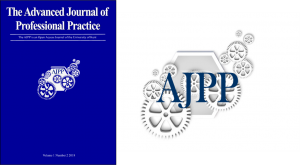At the start of 2020, it was impossible for us to imagine that a virus that most people had never heard of was about to sweep across the world and transform and disrupt all life as we know it.
With schools suddenly forced to close, many young people did not have the end to their time at school that they were expecting. The 2020 generation of school leavers may well go down in history as the Covid-19 generation who had to sacrifice their future.
Lockdown has caused a huge and unprecedented change for the vast majority of students leaving schools. It’s been completely surreal and tremendously anticlimactic for our young people. Many children of friends that I have spoken to and indeed my own children, feel a degree of total loss. All of a sudden, as Boris Johnson stated, our children have had ripped away from them their rites of passage; there were no physical leavers assemblies, no summer parties or proms, no end of year performances or awards ceremonies, no emotional hugs goodbye and possibly more staggering and unprecedented than ever before in the history of this country’s education system – no end of year examinations.
But at this time of sacrifice and at this time of immense uncertainty about the future of education, jobs and opportunities for our young people, Boris Johnson has urged our children to “jump on every opportunity that comes their way”.
In response to this crisis, the Advanced Journal for Professional Practice (AJPP) has undertaken some outreach work with the Simon Langton Grammar School for Boys, in Canterbury, Kent. The 6th form at the Langton is mixed gender and all 6th formers have been afforded the opportunity to write a paper for publication. The aim was to give these young people the opportunity to leave 6th form with a publication on their CV; whether a book review, a scientific poster, a reflective piece of writing or an original project, a publication shows academic flair, motivation to succeed and overarching commitment to improving their situation in these unprecedented times. I am thrilled and delighted to have accepted our first 6th form submission from student Alexander Bilsland, who has executed the prose of a book review with maturity and impressive detail. Alexander’s review of ‘A Student’s Guide to the Schrodinger Equation’, by Daniel A. Fleisch, will feature in our next issue.
This outreach activity has been welcomed by the Langton’s Director of Science, Dr Tim Lesworth, who states that “writing for the Advanced Journal of Professional Practice gives our students the chance to learn beyond the curriculum and rise to the challenge of writing for a professional academic journal. It is an invaluable opportunity for them to gain skills and experience that will stand them in good stead for the future“. In further reflection upon this initiative, he writes:
Undertaking a thorough reading of a scholarly book is a great opportunity for the 6th form students to read around a subject and broaden their knowledge beyond the curriculum. The fact that they set out to do that with a view to writing a book review means they really have to sharpen their focus and evaluate the text, not only in academic terms but also in light of the audience it is intended for. The students also have to develop their skills as they write within a prescribed framework and in a recognised, professional style. The kind of skills they develop in evaluating a whole book and articulating their ideas would not be developed in the normal course of a science A-level and are very valuable to students, especially when it comes to making applications to universities.
Working in partnership with the University of Kent is invaluable; as a school we can have reading lists and we can even set a book review as an assignment. But, that does not have the same gravitas and prestige attached to it as writing for a journal at the local university and it does not place the same level of demand on students either. The confidence and sense of achievement that comes with a recognised publication is something that, without the help of a university partner, would be hard to achieve. The university helps the students take an important first step in learning to evaluate, articulate and put their ideas forward. Inequality, global energy, the climate crisis and pandemics are just a few reasons why the world needs well-articulated ideas right now; there can be no doubt that undertaking activities such as this helps prepare our young people for the challenges facing the world they will soon inherit. Equally, there can be no doubt that as educators it is our responsibility to seek out activities such as this and place more value on them than we do on league table positions.
Dr Lesworth, Director of Science, Simon Langton Grammar School for Boys.
The Langton have embraced this initiative as a positive and enriching opportunity for their 6th form students and as a result AJPP would like to extend this opportunity to other schools and further education institutions with students at 6th form or equivalent. For GDPR, students should be over 18 years old at the point of publication.
Dr Claire Parkin, Editor AJPP


